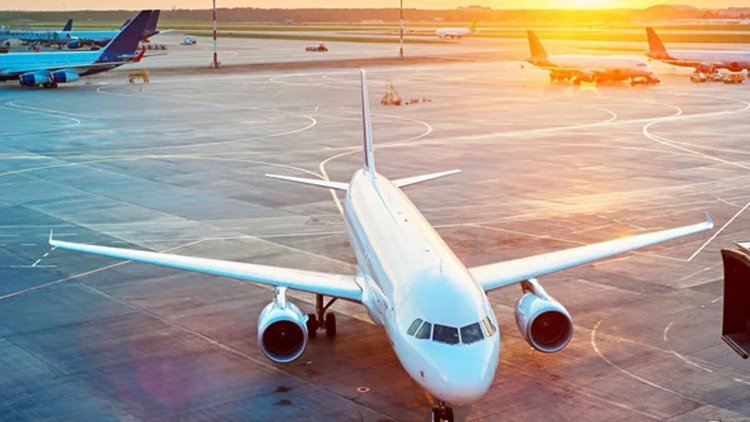If jet fuel prices continue to climb, airfares are anticipated to rise by 2-4 percent per month: Officials from the airline
Airlines may not raise fares all at once, but they are expected to pass on the burden of rising fuel prices in monthly increments of Rs 300-600.

Senior officials from Indian domestic airlines believe that if the price of aviation turbine fuel (ATF) continues to climb, as it has for the past year, domestic ticket rates will likely rise by 2-4 percent per month.
"When compared to last year, domestic airfares are already roughly 30% higher on average." And, as jet fuel prices continue to climb, prices will undoubtedly rise in the future," a senior official from a low-cost airline warned.
He went on to say that while airlines may not raise fares all at once, they are likely to pass on the burden of increased fuel prices in monthly increments of Rs 300-600.
The sudden increase in jet fuel prices and the depreciation of the rupee, according to Ajay Singh, chairman and managing director of budget airline SpiceJet, have left domestic carriers with little alternative but to immediately boost fares.
"We believe that a minimum 10-15% rise in fares is essential to ensure that cost of operations is better sustained," Singh said, adding that the enormous increase is unsustainable and that both the federal and state governments should take immediate steps to cut ATF taxes.
Jet fuel prices are updated every two weeks by fuel retailers. Fuel-related expenses currently account for about 35-50 percent of an airline's total operating costs.
India now has some of the highest ATF tax rates in the world, which drives up the gasoline cost component dramatically.
However, industry executives are concerned that a sharp increase in airfares could jeopardise the sector's embryonic recovery.
"If you look at the Delhi-Bombay route right now, a ticket averages approximately Rs 4,700 to Rs 5,500," another senior executive with a domestic airline said on condition of anonymity, "which is substantially more than the pricing observed before the pandemic and even last year."
In June 2019, the average cost of a one-way ticket between Delhi and Mumbai was Rs 2,300-2,500. According to historical statistics from airlines and online travel agencies, the average price of a one-way ticket between the two cities has grown to Rs 3,500- 3,800 in June 2021.
According to the source, Indian airlines have already begun to feel the effects of higher airfares, with the average number of domestic daily passengers dropping from approximately 400,000 in April to around 350,000 in June.
"We have seen a 30-40% increase in airfares in the last two months at Yatra.com, with demand restrained for the month of June," Sabina Chopra, co-founder and COO, corporate travel and head, industry relations, stated.
According to market experts, the first signs of an increase in ATF prices will be visible in the prices of tickets on regional routes.
They predict that if gasoline costs do not decline, airlines would raise fares on popular tier-I routes by 5-10 percent in the next two months, but that regional routes will see a 20-25 percent increase by the end of August.
ATF prices have more than tripled in the previous year, from Rs 40,783 per kilolitre in January 2021 to Rs 1,41,232.87 per kilolitre in Delhi on June 16, 2022, according to statistics from oil marketing organisations' websites.
The domestic aviation industry is expected to incur a net loss of around Rs 25,000-26,000 crore in 2021-22, according to credit rating agency ICRA Ltd, due to a strong jump in crude oil costs and a recovery hampered by the recent wave of the pandemic. The sector is expected to require additional capital in the range of Rs 20,000-22,000 crore from 2021-22 to 2023-24, according to the agency.




 admin
admin 




















